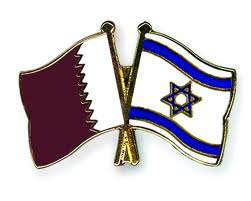
Effective July 1, the European Handball Federation (EHF) introduced a new internal legal system, with a new structure and with a brand new List of Penalties. This is a laudable effort, and I will come back to that in a separate article shortly. But I bet that the EHF had never envisaged what kind of case would be the first disciplinary case coming up following July 1.
In early July, as is the practice of the EHF, a ‘Men’s European Open 19’ was organized in Goteborg, Sweden, parallel to the famous Partille Cup. The emphasis is on the word ‘open’. This enables the EHF to invite any interested nations, including, as has been happening before, non-European teams. On this occasion, Qatar was offered the opportunity, something that clearly many other non-European nations envy them.
Key to the story then is that Israel is generally part of Europe in the world of sports, essentially to avoid the kind of situations that arose here. And Israel did indeed participate in the event. Moreover, the teams from Qatar and Israel were placed in ‘neighboring’ groups, with a risk that was foreseeable from the beginning that they might find themselves in the same group in the intermediate round. This should have given the Qatari the necessary opportunity to consider the possible implications.
And what happened, of course, is that Israel and Qatar, together with Belarus and Portugal, came together in the next round. Except that, when on July 7 the match was to have bee played, the Israeli had to wait in vain for their opponents. I am not familiar with how the Qatari may have presented their explanations to the EHF and at what level their decision was instigated. They were promptly penalized, not just through a default in this match but by being ‘kicked out’ from the rest of the event, prohibited from returning next year, and required to pay a fine.
Perhaps with that some will feel that the matter is finished, but I do not have that opinion. We had a rather strange situation where Qatar voluntarily competed in an international event, but under the auspices of the EHF, not the IHF. So the EHF, in return for its hospitality had to take on this issue, and the IHF was not having any formal role in the process. I do not even know if the EHF in any way has specifically ‘reported’ the matter to the IHF. Clearly the IHF is not showing any signs of dealing with the issue.
And such an issue would indeed be a hot potato for the IHF and its President. I can testify that for years the handball of Israel has enjoyed a status of privilege at the highest level of the IHF. Maybe it has something to do with Egyptian-Israeli relations. (In fact, the tradition continues, in the form of an inexplicable nomination of ‘not very outstanding’ referees from Israel to a World Championship later this year…).
A slightly similar situation happened in the past, when an IHF match delegate from Iran refused to accept an assignment in a World Championship game involving Israel. On that occasion, the punishment was swift. Of course, technically the culprit at that time was an individual IHF official, although one can imagine that the instructions came from ‘a higher level’. Now we are talking about a decision involving a federation, Qatar, and its national team. Clearly the responsibility rests with the federation and the highest sports and political authorities of the country.
Accordingly my question to the IHF and to the international handball family is: how does this action square with the responsibility that Qatar has sought and been given, in terms of being nominated as the host for the 2015 Men’s World Championship??? Clearly, their infringement is not a minor one. It goes very explicitly against one of the fundamental aspects of the IHF By-Laws, a clause stating that: “The IHF tolerates no discrimination on the basis of race, creed or political orientation.” There is no credible alternative explanation for the failure of the Qatari team to take the court in the scheduled game against Israel.
So, can Qatar be allowed to remain the host for 2015 after this incident? How can one trust that this country/federation will carry out all of its obligations? How can one trust that all potential participants will be treated properly? What would happen if the Israeli team somehow were to qualify for 2015? As I see it, one should not accept reassurances from the Qatari, and then just wait and see. In my personal opinion, what happened in Goteborg appears to have disqualified them as hosts of a World Championship!










